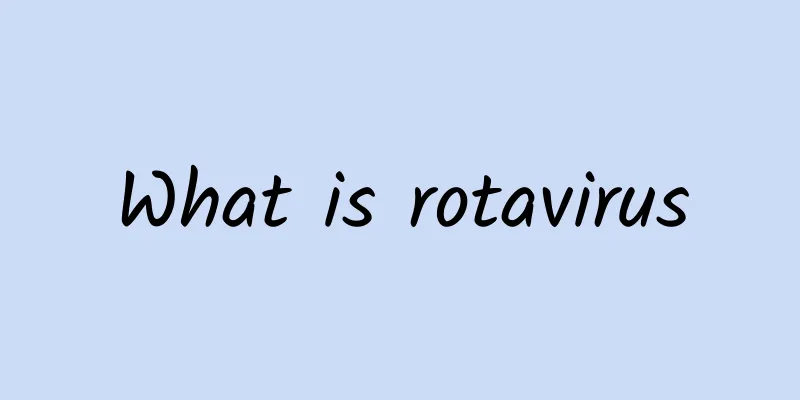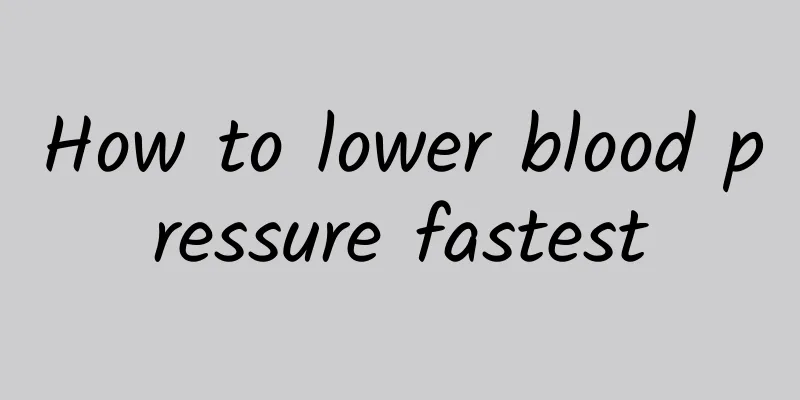The food seems to be stuck in the chest instead of in the stomach

|
When people eat, various problems always occur. For example, when some people eat, the food cannot enter the stomach and instead gets stuck in the chest. This is most likely a symptom caused by esophagitis. The esophagus is an important part of the digestive system. If the esophagus is inflamed, it will have a great impact on human health. Below we will introduce the relevant knowledge about esophagitis in detail. 1. Causes and classification 1. Radiation esophagitis 2. Acute corrosive esophagitis Corrosive esophagitis often occurs as an accident and is prone to occur in children. In particular, various household cleaners have entered many households and are easily ingested by children. These products contain sodium hydroxide (potassium), sodium carbonate (potassium), potassium permanganate, etc. Corrosive esophagitis in adults is often caused by swallowing strong acids or alkalis as a means of suicide. It is not uncommon for strong acids and alkalis to be accidentally ingested by people when they are stored in containers used for beverages or alcohol. Drug-induced esophagitis has received clinical attention in recent years. It is now recognized that patients of all ages, in all settings, and taking all therapeutic doses of medications have the potential to injure the esophagus. 3. Suppurative esophagitis Purulent esophagitis is a purulent inflammation caused by bacteria invading the esophageal mucosa when the esophageal mucosa is damaged. Patients may be asymptomatic or have only neck pain or sore throat. Patients with a larger lesion area may also experience symptoms such as dysphagia, pain behind the sternum, chills, and fever in addition to neck pain or odynophagia. Those with higher reactivity often have high fever. A small number of patients may develop sepsis and show corresponding symptoms. 4. Reflux esophagitis 2. Clinical manifestations The main symptoms are heartburn, pain and difficulty in swallowing, and pain behind the sternum. When esophagitis is severe, it can cause esophageal spasm and esophageal stenosis, a "choking" feeling when swallowing food, and even vomiting. Bleeding from esophagitis is usually mild, but it may also cause vomiting of blood or black (tarry) stools. Esophagitis caused by different causes may be accompanied by corresponding clinical manifestations. 3. Treatment Methods According to the different causes, choose the corresponding treatment principle 1. Eliminate the cause of the disease. 2. Gastric acid inhibitors and mucosal protective agents. 3. When there is concurrent infection, antibiotics (bacterial, fungal) or antiviral drugs should be given. 4. Provide hemostatic treatment (including endoscopic) when bleeding occurs. 5. When symptoms of stenosis or obstruction occur, endoscopic dilation and stent placement may be considered. |
>>: Spurring pain in the spine corresponding to the chest
Recommend
Why is urine yellow-green? What causes yellow urine?
The color of urine can change with diet. If the u...
What medicine is effective for thick blood?
The health of blood has a great impact on people&#...
Pain on one side of the neck
Some people often feel muscle pain on one side of...
Chinese medicine for nourishing blood, moistening dryness, dispelling wind and relieving itching
The reason why skin diseases are annoying is that...
What should I do if I have cerebral infarction and have difficulty swallowing?
Don’t underestimate the symptom of dysphagia, bec...
Is artificial urticaria contagious?
Speaking of urticaria, many friends will think of...
Summary of the benefits of health preservation
People who work with machinery know very well tha...
Can potato juice remove freckles?
Potatoes are one of our most common vegetables. N...
Unilateral nose bleeding
Whenever it is hot in summer, the air will be par...
What to use for baby's prickly heat
Every summer, we will find that many children oft...
What to do if the mouth corners are covered with bubbles?
People with blisters at the corners of their mout...
What are the symptoms of facial folliculitis
Facial folliculitis is actually a skin disease, w...
The difference between Fuzi Lizhong Pills and Guifu Lizhong Pills
The ingredients of Fuzi Lizhong Pills are Lu Te T...
Treatment and maintenance of ichthyosis
Ichthyosis is a relatively common hereditary dise...
Breast fibroids
Breast fibroids are a common disease in clinical ...









